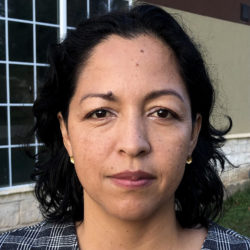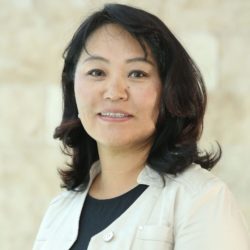November 10, 2021
About this seminar
Farmer organizations and agricultural cooperatives are associations of rural people who come together to form jointly owned, democratically controlled, and equitable enterprises. The role of cooperatives has been a matter of controversy and debate. Although they are viewed as procompetitive, pro-development, and pro-poor forces, they are also viewed as highly dependent on subsidies and external managerial assistance, susceptible to be co-opted by political stakeholders. This systematic review summarizes the best available quantitative evidence to estimate the overall effect of membership on farmer’s outcomes, explore and explain variations in the effects between studies, and elucidate the mechanisms to achieve the effect. After screening over 4,000 studies, 46 were included in this systematic review and 36 used in meta-analysis. The effect of membership on farmers’ adoption of inputs and practices, as well as production, suggests an important role it plays in facilitating access to inputs and resources, knowledge sharing and transfer, technical support, and risk sharing in farming activities. We found that most of the members indeed benefit from membership with the average member having a better overall outcome than 62% of nonmembers. About 58% members have higher incomes, receive a better product price, or supply a greater marketable share than nonmembers.
Elizabeth Tabares
Mrs. Elizabeth Tabares is a member of the Borlaug Institute family. She earned her MS degree in Agricultural Economics from Texas A&M University in 2017. She has experience in research synthesis, and expertise in systematic reviews and meta-analysis relate to Food Waste, School Meal Programs, and interventions to improve agricultural markets in developing countries. Before coming to the U.S. she worked on environmental policy in her native country, Colombia.
Ariun Ishdorj
Dr. Ariun Ishdorj is an Associate Professor in the Department of Agricultural Economics at Texas A&M University. She holds Ph.D. in Economics from Iowa State University, MS in Mathematics from University of Idaho and M.S. in Mathematics from National University of Mongolia. Her work spans multiple disciplines including nutrition, health, animal science and economics. Her current research focuses on food programs and nutrition policies, issues related to food security and disability, and systematic review and meta-analysis of food waste and program evaluation. Dr. Ishdorj has extensive experience in statistical modeling using primary and secondary large data in food and nutrition.
Roger D. Norton
Dr. Norton earned his Ph.D. in economics at Johns Hopkins University. He teaches a graduate course in agricultural development policy and has taught at the University of New Mexico (as full professor of economics), Oklahoma State (visiting adjunct professor), the Universities of Rome and Naples (visiting professor), and the leading business school INCAE, Costa Rica (visiting professor) and has lectured widely. He served as director of a research division in the World Bank and has worked on development projects and activities in 50 countries. He has led or been principal advisor for over fifteen agricultural and water resource projects in Asia, Africa, Latin America, and Eastern Europe for international agencies including the World Bank, USAID, USDA, Interamerican Development Bank, FAO, ASEAN and others. His numerous publications include six books including on agricultural development policy, with examples from 80 countries (Wiley); mathematical modeling (Macmillan and Johns Hopkins Press); and agricultural value chains (Academic Press, 2017) with case studies on value chains in Colombia, Rwanda, and El Salvador. He lived in Latin America 23 years and Asia 3 years and has worked closely with counterparts from farmers, exporters and local researchers to Cabinet Ministers (Honduras, El Salvador, Panama, Nicaragua, Dominican Republic, Rwanda, Eritrea, Estonia) and Presidents (Guyana, Honduras, Mozambique). He is fluent in Spanish and reads French and Portuguese.
About the Speaker

Elizabeth Tabares
Program Coordinator, Borlaug Institute

Dr. Ariun Ishdorj
Associate Professor, TAMU COALS Department of Ag Economics


